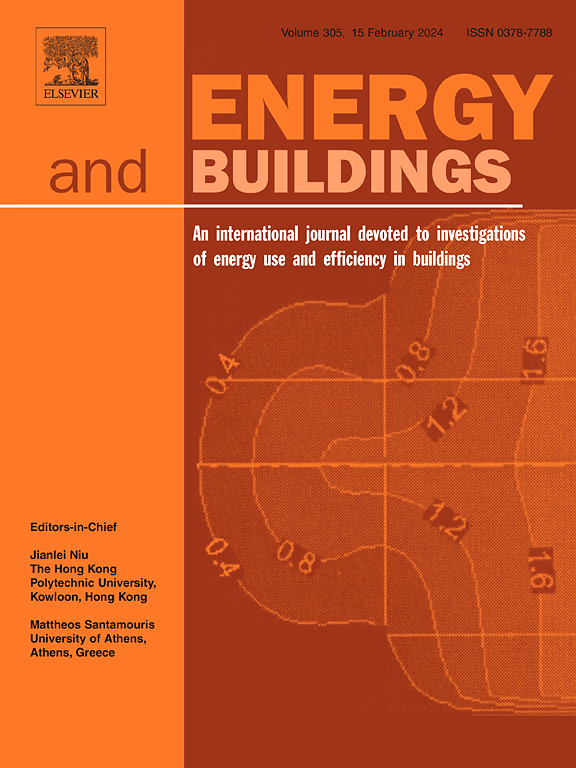Impact analysis of uncertainty in thermal resistor-capacitor models on model predictive control performance
IF 6.6
2区 工程技术
Q1 CONSTRUCTION & BUILDING TECHNOLOGY
引用次数: 0
Abstract
Model Predictive Control (MPC) is extensively utilized for optimal control in building systems. Despite substantial research being dedicated to exploring the impact of uncertainties in external and internal disturbances on the performance of MPC, the existing studies neglect the potential impact of uncertainties in model parameter identification on control performance. To address this gap, this study quantifies the impact of model uncertainty on MPC performance through a test case in a virtual environment. Various levels of uncertainties for parameters R and C are artificially introduced to assess the MPC performance. The causes of the impact of model uncertainty on control performance are further explored through analysis. We select a first-order RC model to modelling building thermal dynamics. MPC is employed to optimize the heat pump signal with the goal of minimizing the energy cost while maintaining thermal comfort. The simulation results demonstrate that a negative deviation in model parameter identification has a more pronounced impact on MPC performance than a positive deviation, which has a negligible effect on MPC control performance. Deviations in parameters from their true values affect both heat losses from the zone and thermal capacity, thereby influencing the estimated temperature by the RC model. Consequently, these factors, in turn, affect the system’s control decisions, leading to variations in the objective function values. This study can provide an insight into the relationship of model parameters uncertainties and MPC performance, and facilitate the practical application of MPC in buildings.
热电阻-电容模型的不确定性对模型预测控制性能的影响分析
模型预测控制(MPC)广泛应用于建筑系统的最优控制。尽管大量的研究致力于探索外部和内部扰动的不确定性对MPC性能的影响,但现有的研究忽略了模型参数识别中的不确定性对控制性能的潜在影响。为了解决这一差距,本研究通过虚拟环境中的测试用例量化了模型不确定性对MPC性能的影响。人为地引入了参数R和C的不同程度的不确定性来评估MPC的性能。通过分析,进一步探讨了模型不确定性对控制性能影响的原因。我们选择一阶RC模型来模拟建筑热动力学。采用MPC对热泵信号进行优化,在保证热舒适的同时使能源成本最小化。仿真结果表明,模型参数识别中的负偏差对MPC性能的影响比正偏差更显著,而正偏差对MPC控制性能的影响可以忽略不计。参数偏离其真实值会影响区域的热损失和热容量,从而影响RC模型估计的温度。因此,这些因素反过来影响系统的控制决策,导致目标函数值的变化。该研究有助于深入了解模型参数不确定性与MPC性能之间的关系,为MPC在建筑中的实际应用提供参考。
本文章由计算机程序翻译,如有差异,请以英文原文为准。
求助全文
约1分钟内获得全文
求助全文
来源期刊

Energy and Buildings
工程技术-工程:土木
CiteScore
12.70
自引率
11.90%
发文量
863
审稿时长
38 days
期刊介绍:
An international journal devoted to investigations of energy use and efficiency in buildings
Energy and Buildings is an international journal publishing articles with explicit links to energy use in buildings. The aim is to present new research results, and new proven practice aimed at reducing the energy needs of a building and improving indoor environment quality.
 求助内容:
求助内容: 应助结果提醒方式:
应助结果提醒方式:


